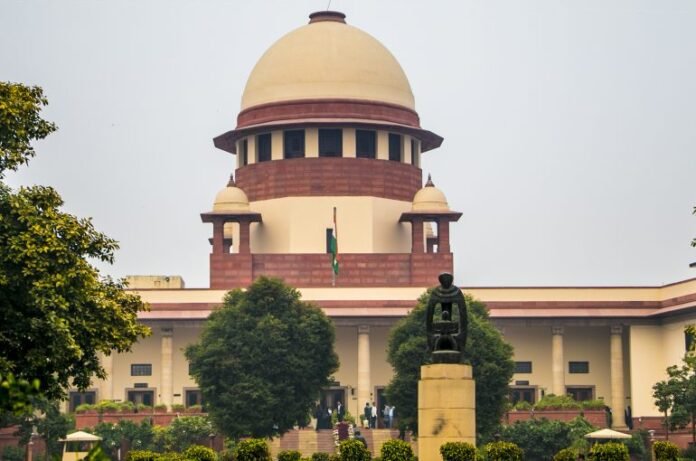[ad_1]
WHEN DELAY ISN’T DISOBEDIENCE: SC ON LIMITS OF CONTEMPT JURISDICTION

INTRODUCTION
The Supreme Court of India in the case of A.K. Jayaprakash (Dead) through LRs v. S.S. Mallikarjuna Rao & Anr. Contempt Petition (Civil) Nos. 1002–1003 of 2023 in Civil Appeal Nos. 6732–6733 of 2009 (Date of Judgment: 19 August 2025) (Chief Justice of India BR Gavai and Justice AG Masih), addressing allegations of contempt against Punjab National Bank for failing to comply with earlier directions regarding payment of dues. The case revolved around prolonged non-payment of retirement benefits to a dismissed bank manager, raising questions about delayed compliance, wilful disobedience, and the scope of contempt jurisdiction.
BRIEF FACTS
A.K. Jayaprakash, who served as a bank manager, was dismissed in 1985 on charges of irregularities. The Labour Commissioner later annulled the dismissal, observing that there was neither mala fide intent nor financial loss to the bank. The Madras High Court affirmed his reinstatement but limited his back wages to 60%. After Nedungadi Bank was amalgamated with Punjab National Bank, the dispute reached the Supreme Court, which in 2018 ordered that the outstanding dues be settled within three months. Despite this direction, the Bank disbursed the payments much later, spread out between 2019 and 2023. During this period, Jayaprakash passed away, and his legal representatives continued the litigation through contempt petitions, alleging wilful non-compliance and also claiming pensionary benefits.
ISSUES
- Whether the Bank’s delay in compliance constituted wilful and intentional disobedience sufficient to invoke contempt jurisdiction
- Whether the Petitioner’s claim for pensionary benefits, not previously adjudicated, could be entertained in contempt proceedings.
- Whether compensation ought to be awarded considering the prolonged delay in payment of dues.
ANALYSIS
On Contempt Jurisdiction
The Court reiterated that civil contempt requires deliberate and intentional disobedience (Rama Narang v. Ramesh Narang, (2006) 11 SCC 114). The Court noted that although the Bank did not adhere to the three-month deadline, the delay was attributed to administrative challenges following the merger of Nedungadi Bank with Punjab National Bank and the effort required to trace decades-old records. Thus, while the lapse reflected negligence, the absence of mens rea (wilful intent) meant that contempt proceedings could not be sustained.
On Claim for Pension
The Court emphasized that contempt proceedings cannot be invoked to obtain new substantive reliefs that were not granted in the original litigation (Jhareswar Prasad Paul v. Tarak Nath Ganguly, (2002) 5 SCC 352). As pensionary entitlement had never been adjudicated by any court earlier, the claim could not be entertained within the scope of contempt jurisdiction.
On Compensation for Delay
Despite rejecting contempt action, the Court acknowledged that the Petitioner had suffered prolonged hardship, with dues unpaid for more than a decade after retirement. To bring finality, the Court awarded a lump sum compensation of ₹3,00,000 to the widow of the deceased Petitioner (or legal heirs), payable within eight weeks, failing which interest at 8% would apply.
CONCLUSION
The contempt petitions were disposed of by the Hon’ble Court, wherein:
- The contempt notice was discharged, as the delay was not considered wilful disobedience.
- The claim for pension was rejected since it had never been previously adjudicated.
- A compensation of ₹3 lakhs was awarded for the inordinate delay in disbursing retirement dues.
This ruling underscore two key principles:
Contempt jurisdiction is limited and cannot be stretched to create new rights or remedies and that at the same time, the Court can adopt an equitable approach by granting compensation where justice demands closure.
The Judgment reflects the Court’s balancing act between enforcing its authority and recognizing genuine administrative difficulties, while still ensuring that litigants are not left uncompensated for decades of hardship.
SARTHAK KALRA
Senior Legal Assocaite
The Indian Lawyer & Allied Services
Please log on to our YouTube channel, The Indian Lawyer Legal Tips, to learn about various aspects of the law. Our latest video, titled “Air India Plane Crash in Ahmedabad: What Happened? | Legal Analysis | Advocate Sushila Ram Varma”
https://www.youtube.com/watch?v=azYUBkke9jI&t=13s
[ad_2]
Source link

